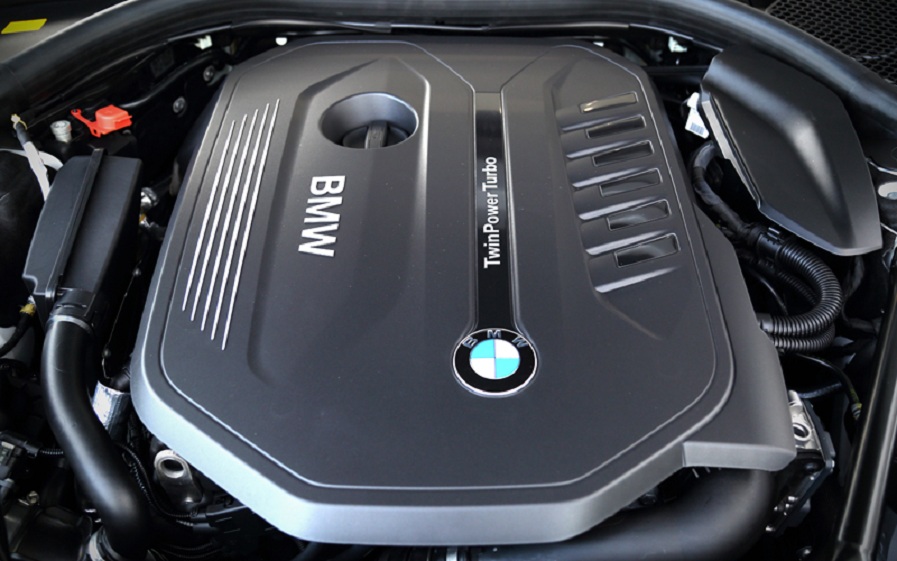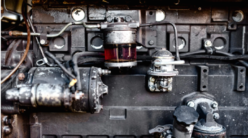Breaking In Your Reconditioned BMW Engine: Setting the Foundation for Longevity
The first 500 to 1,000 miles after installing a reconditioned BMW engine are vital. This is a time for the engine’s internal parts such as pistons, rings and bearings, to be properly worn in and create a strong seal. Careful driving at this time supports your engine’s good health and prevents early failure. It’s best not to drive aggressively, for example, by rapidly increasing speed or running your engine above 4,000 RPM. Instead, keep your driving speed in check and alternate between city and highway routes for the engine to not wear out as fast. Don’t drive immediately after you start your car; let it warm up for a short time in chillier temperatures so the oil can spread throughout the engine. Following these steps during the break-in phase sets a solid foundation for your reconditioned BMW engine’s long-term reliability and performance.
Regularly checking your oil levels throughout this period is smart, just in case new parts make the car consume a little more. Don’t strain the engine by towing a lot of weight or putting too much in your car. If you’re unsure about the break-in process, consult the supplier or fitter of your reconditioned BMW engine for specific advice tailored to your model. Performing these easy tasks will keep your engine working well and stop future problems.
Why Comparing BMW Engine Prices Before Purchase Matters?
Before you commit to a reconditioned BMW engine, using a BMW engine price comparison service can save you time, money, and hassle. Just because an engine looks affordable doesn’t mean it’s well tested, certified or covered by warranties. A reliable comparison tool lets you see multiple engines side by side, checking their engine history, current mileage, compatibility with your selected BMW model and how the engine has been refurbished. All delivery and fitting costs will be announced at the beginning, so nothing will surprise you.
Make sure to check the warranty period—some suppliers offer 6 to 12 months, but these terms are only valid if a skilled expert installed the engine. A BMW engine price comparison service helps you balance cost with quality, ensuring you get a reliable engine that suits your budget. Buying a tested engine from a reputable supplier may help avoid engine problems and will probably be cheaper in the end. Research different models and offers and you’ll know you made the right choice.
The Importance of Professional BMW Engine Supply and Fitting Services
Even the best reconditioned BMW engine won’t perform well if it’s not installed correctly. That’s why choosing a professional BMW engine supply and fitting service is crucial. Professionals in auto service are aware of the many intricacies in a BMW engine, from the wiring and sensors to the correct mounting points. Correct installation makes sure your engine connects seamlessly with the ECU, turbocharger and other car parts. A certified fitter will check the car after the installation, looking for errors, leaks and trouble with how the vehicle performs.
Opting for a trusted BMW engine supply and fitting service also protects your warranty. It’s important to have professionals instal your appliances, as many suppliers only honour their warranties within a year or more if you have your appliances professionally installed. Select someone with a good reputation, primarily BMW-focused reviews or certifications. When you go with a reliable service, you’re looking after your engine as well as ensuring your BMW will run smoothly and last.
Signs That Your Reconditioned BMW Engine Needs Immediate Attention
Your reconditioned BMW engine will often show warning signs if something’s wrong, and catching these early can prevent major damage. Pay attention to any sounds of knocking, rattling or grinding, as these might signal trouble with the machine’s moving parts. If you see smoke from the exhaust that is blue or white, check for oil or coolant leaks and a sudden decline in acceleration or horsepower might mean fuel or turbo issues. If any dashboard light comes on such as the check engine or low oil pressure light, you should act right away. When you use more fuel while keeping your driving habits the same, that is something to pay attention to.
If you notice any of these issues, don’t wait—book a visit with a qualified mechanic or your BMW engine supply and fitting provider. Using diagnostics, they can figure out what the problem is, whether it’s a simple sensor error or a severe issue. Acting quickly can save your reconditioned BMW engine from costly repairs and keep it performing at its best.
Maximising Lifespan: How Correct Fitting and Maintenance Go Hand in Hand
To get the most out of your reconditioned BMW engine, professional fitting and regular maintenance must work together. A trusted BMW engine supply and fitting service ensures your engine is installed with precision, from correctly aligned components to properly calibrated systems. A solid beginning means a machine can be relied on for a long time. Make sure to stick to a schedule for oil changes, changing air philtres and reviewing your belts, hoses and fluids after replacing the heating system. It ensures that your engine runs well and helps keep little issues from turning into big problems.
The way most people drive also helps a lot. Don’t drive suddenly at full speed, keep your engine off while parked for long or add too much weight, because it can tax your engine. Have your BMW checked and serviced by an expert once each year to catch any problems quickly. With the right combination of expert fitting, consistent care, and smart driving, your reconditioned BMW engine can deliver performance and reliability that rivals a factory-fresh unit, all while saving you money.
Choosing the Right Oil and Fluids for Your Reconditioned BMW Engine
The right oil and fluids are the lifeblood of your reconditioned BMW engine. Most BMW engines with turbochargers or M-series features, especially, require LL-04 or LL-98 synthetic oil to prevent wearing out and ensure their peak performance. When you use the wrong oil or low-quality fluids, sludge may form, decrease engine performance or cause costly damage. Always check your owner’s manual or ask your BMW engine supply and fitting provider for the exact specifications. Always make sure you are using appropriate coolant, brake fluid and transmission fluid, because each helps maintain your engine and car.
Looking after your fluids is just as vital for vehicle health. The oil and oil philtre should be changed every 5,000 to 7,500 miles based on your care for the vehicle and type of BMW you have. Cleaning the oil philtre helps trap dirt and debris that might otherwise harm your engine. The cooling system needs a fresh fluid flush every two to three years to stop rust and transmission fluid should be changed every 30,000 to 60,000 miles to ensure your car shifts through gears smoothly. By sticking to a regular fluid maintenance schedule and using manufacturer-approved products, you’ll keep your reconditioned BMW engine running like new for years.
Final Thoughts
Maintaining a reconditioned BMW engine doesn’t have to be complicated, but it does require attention to detail. Properly breaking in your car and using the proper fluids, along with watching for indicators, gives your engine a longer life. A BMW engine price comparison service makes it easy to find a quality engine at a fair price, while professional BMW engine supply and fitting services ensure it is installed correctly.
If you rely on reputable suppliers, care for your vehicle according to a routine and take care of problems as they come, you should have smooth, dependable driving for years. Spend some time on finding the right repair shop and stay with certified workers, so your BMW can work smoothly.






